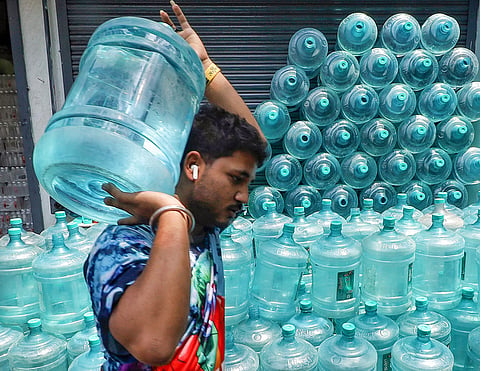

BENGALURU: The Karnataka government has formulated guidelines for use of treated water in view of the water crisis in Bengaluru and other parts of the state.
It has made it mandatory for residential complexes to use at least 50% of the treated water and the rest for commercial purposes. A gazette notification in this regard was published on April 3.
Though the authorities promoted treatment of wastewater aggressively, there has never been any clarity on the manner of using the treated water. In February, Chief Minister Siddaramaiah announced on the floor of the House that the government would soon formulate guidelines on use of treated water.
Rainwater harvesting expert S Vishwanath welcomed the government move. “Many apartments have surplus treated water and they do not know what to do with it. They simply dispose of it (into the stormwater drains).
This can now be solved as they are permitted to sell up to 50% of treated water. That is, if they do not have a demand for internal use. It has the potential now to create a market for treated water.”
Many flats treat water but dispose it of, says expert
Rainwater harvesting expert S Vishwanath welcomed the government move. “Many apartments have surplus treated water and they do not know what to do with it. They simply dispose of it (into the stormwater drains). This can now be solved as they are permitted to sell up to 50% of treated water. That is, if they do not have a demand for internal use. It has the potential now to create a market for treated water.”
It is a good move, but it should be monitored carefully, he said. “The government should be dynamic in changing the law if needed. It took a long time to change the old law. Everyone knew that they could not fully use the surplus treated water in their complexes. It should be monitored and tweaked if required and made workable,” Vishwanath said.
Bengaluru-based advocate Prashant Mirle, who specialises in real estate-related aspects, said, “It has been designed to tackle the city’s water scarcity by promoting the efficient use of treated water in line with the Pollution Control Board’s norms.”
The notification states that treated water can be used for construction, industrial, horticulture and other purposes. It strictly forbids use of treated water for drinking, pharmaceutical or food processing purposes. The approach not only aims at conserving water resources, but also at fostering a community-wide effort towards sustainable urban living.